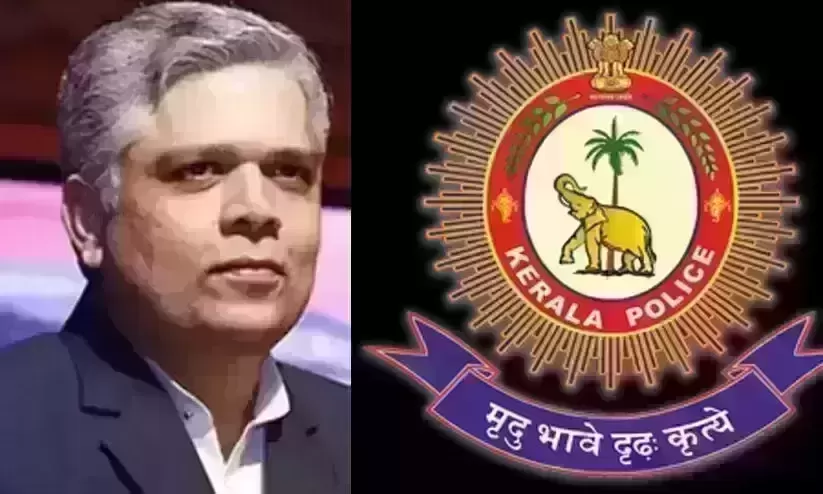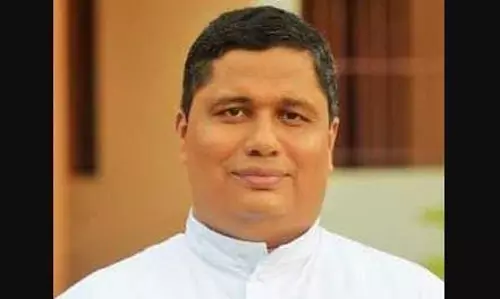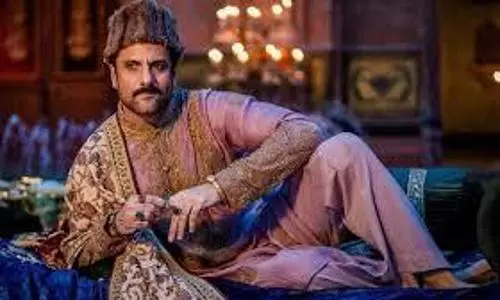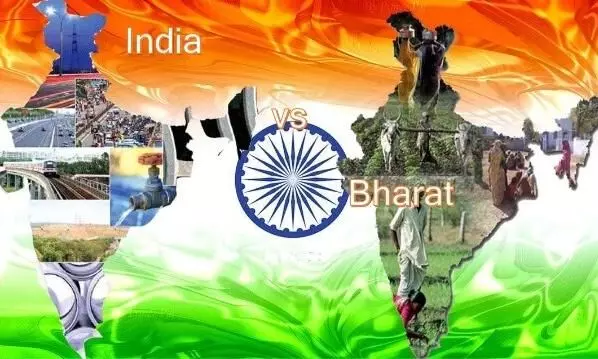
‘India, that is Bharat’: Intertwined, Inseparable
text_fieldsThere are speculations of ‘punarnamakaran’ (renaming) of the Union of India as Bharat, removing the unique and express reference to India. Rumours attained force from the dinner invite sent to the leaders of the G-20 Nations from the Presidential Palace, where the President addressed invitees as the ‘President of Bharat’. Whatever the political overtones and legal implications surrounding the debate, one can notice the growing tendency to brand the country exclusively as Bharat, skipping the well-acknowledged primary reference to India. Maybe this was to make known to the world at an appropriate venue such as the G-20 Summit that the country is already Bharat and more than India.
The long saga of debate to rename India exclusively as Bharat dates back to the time of framing of our Constitution by the Constituent Assembly in 1948-1949 period. Historians and philologists have delved deep into the matter. Two Congress leaders in the Constituent Assembly, Seth Govind Singh and K.Tripathi wanted to rename the country as Bharat, inspired by the Irish Free State Constitution of 1936, which was a bundle of colloquial expressions. Another member, H.V. Kamath vehemently argued in the Constituent Assembly to name the country ‘Bharat’ instead of India and to use the word ‘Pradesh’ in the place of States.
But the Constituent Assembly of India that met in the Constitution Hall, New Delhi on 18th September 1949 under the Chairmanship of DrRajendra Prasad, after elaborate deliberations and thoughts rejected other prominent suggestions and chose the best-suited name for the new-born Republic, namely, “India, that is Bharat”. It thus permitted the use of India and Bharat as interchangeable terms, allowing both to co-exist. Dr. Brambedkar never spared any occasion to express“We are Indians, firstly and lastly”. If there is no political importance to the name and no political gains ensuing therefrom, why do you change it at this point in time, is the emerging concern.
Re-naming the named
India, that is Bharat, is essentially India as constitutionally named, designed and framed. The said brand name adopted for the Union sounds well in and out. The name ‘India’ has been used in the Constitution in several places. The Preamble to the Constitution starts with the expression, 'We the people of India, solemnly resolved to constitute India as a sovereign socialist secular democratic republic'. The Preamble represents the Objectives Resolution adopted by the Constituent Assembly in January 1947 and nowhere in the Preamble is there any reference to Bharat. The name of the country is associated with its people. When the people of the country who have adopted, enacted and given to themselves the Constitution are one and the same people of India, the country representing its population can only be primarily branded as India.
Article 1(1) of the Constitution while dealing with the name of the Union proclaims that India, that is Bharat, shall be a Union of States. Article 52 notes there shall be a President of India. Article 63 says there shall be a Vice-President of India. Noticeably, Parliament is referred to as the Parliament for the Union in Article 79. The Chief Justice of the country is named Chief Justice of India in Article 124. Similarly, constitutional offices such as the ‘Áttorney-General for India’ and ‘Comptroller and Auditor-General of India’ appear in Articles 76 and 148 of the Constitution. The oath or affirmation by the President prescribed in Article 60 also makes reference to the President of India.
Article 77 deals with the conduct of business of the Government of India. Jurisdiction of the Union in relation to territories outside India is mentioned in Article 260. Consolidated and public accounts of India are explained in Article 266 and borrowing by the Government of India is referred to in Article 292. Freedom of trade and commerce within the territory of India is mentioned in Article 301. Provision for All India services is provided in Article 312. Above all, the short title of our Constitution as specified in Article 393 names it as the Constitution of India. Hence, for any ‘punarnamakaran’ (renaming) of the republic as Bharat, it may require constitutional amendment necessitating corresponding changes in several such Articles in the Constitution so as to substitute ‘Bharat’ in the place of ‘India’.
Mapping an Empire
The origins of the name of a nation are often murky and sometimes, an inexact exercise. Myths and legends may be entertaining, but rarely of any value. The way the country gets its name is hardly democratic. Toponymy, the study of place names would show that the description of a country could be based on a feature of the land, a tribe name, or an important person or based on its distinct features. America is named for the Italian explorer Amerigo Vespucci, the person credited with realizing that the continent the Europeans bumped into in the late 1400s was not India. Singapore means the ‘lion-city’, and the lion head is its national symbol. Country naming could also be based on the national qualities and values associated with it such as liberty, justice, equality, fraternity, strength and so on.
Gandhiji’s appeal to the British to ‘quit India’ was not definitely just about the people living near the Indus River. Just like our first names are handed to us without our input, the names of nations are also mostly inherited, albeit in an undemocratic manner. Occasionally, we get names we don’t want, and our efforts to correct them don’t stick. The use of Bharat as another name for India, in the map of country names could be justified on ethnicity. The name can be traced to the Bharatha dynasty, founded by the mythical King, Bharata.
Bharatha was more a cultural space whose unity was to be found in the social order of dharma, whereas India was more a political order. At the time of Independence, both India and Bharat were equally worthy names to be accepted as the official names for the newly-born nation. Constituent Assembly consciously allowed the nation to be registered under both names as both identities taken together perfected its history and cultural roots.
Best of the best
Every nation on earth is named after certain distinguishing features. The name of a country represents its identity, culture, history, heritage, tradition and so on. A country’s name instils in its people a sense of pride. Our leaders use them as emotional triggers in speeches; citizens create slogans around country names to rally support. In many cultures, a name is given at birth and remains with it throughout. Names of the countries are usually passed down from generation to generation. It is the most beautiful impression of the nation, shaping our destiny and future. It even influences the way we are perceived by others. It is the source of strength and comfort and an inspiration for greatness, positive meaning and symbolism. It represents the energy and vibrancy needed for the country. It has positive connotations and power that make the country unique standing out from the rest, building relationships and part of the legacy.
More than a word or designation
The name of the country is more than just a word or designation. It represents everything that the country stands for. It is a calling card or an introduction that tells the rest of the world who we are. It is equally the representation of our soul suppressed for long. It is our title and mission journey from Mohanjedaro and an indication of the lessons we have learned and the experiences we had in our lifetime. To act as the continuing source of inspiration and guidance, we have named ‘Bharat’ as India to highlight the events and transformative changes in our journey from Bharat to India and to show that the country, India is vindicating the history, culture, heritage, tradition and practices of Bharat preserved as cherished values since the Vedic ages. It is this message that helps us to connect with truth and hence it is the best of the best in the land of history, culture, tradition and heritage.
Politics of naming
The politics of naming a country is an open-ended process. It is part of how we view the past. Names adopted for the country may display social order and political order. Bharat was a territory mapped and organized by the British under the name “India”. India, that is Bharat, makes it clear that it is not merely a territorial concept or name appearing as an ingredient of nationhood, but magnetic words proclaiming patriotism and electrifying the people of this country. The history of the reception of the constitutional equation of Bharat and India is thus a matter to be understood in the midst of attending political, social and cultural circumstances. After all, it is not undesirable to use one name as the equivalent of the other or as the translation of the other. Two identities are always better than one, be it for the individual or for the nation. Jawaharlal Nehru in his book, The Discovery of India, wrote: "Often, as I wandered from meeting to meeting, I spoke to my audiences of this India of ours, of Hindustan and of Bharatha, the old Sanskrit name derived from the mythical founders of the race”.
Frontiers to boundaries
The name change of a country is different from the name change of an individual. It cannot be carried out lightly like an individual changing his name based on personal preferences or life experiences. Name change of a country is a complicated affair and cannot be a matter of personal preferences or party’s choices, but shall be based on national consent and people’s preferences. It cannot be a one-party business either.
The criterion for the name change should be whether the change would work best for the nation, and whether it presents the memorable and unique impressions shaping the lives of its inhabitants and their historical legacy. Giving the most beautiful name should take place in a beautiful way. Preferring an ancient name for our country is not something unacceptable. But it shall not be at the cost of giving up the name fairly fixed by the framers. There are people who tell us that India is more ancient than Bharat. When we exclude India, we are excluding our befitting history as a dependent colony and as an Independent republic, our freedom struggle, the 5000 years of civilization and culture behind us, a civilization which in the words of Ralph Waldo Emerson reached the ‘summit of human thoughts’, our voice and concern for the values of equality, liberty, fraternity and justice.
The Vedas regard India as the progeny of Bharata. The boundaries of Bharat are mentioned in Vayu Purana. The battle for freedom was fought under the leadership of Mahatma by raising the slogan of “Bharat Mata Ki Jai”. Land to the south of the Himalayas and north of the southern ocean was called Bharat. The name, India may be seen as a word imposed on us by alien rulers, who robbed us of our freedom in order to acquire our wealth. But the retention of the name India would show before the world how a country in bondage which lost its culture, history, prestige, soul, form and name regained its inner consciousness and external form by keeping the people at the centre.
Let both co-exist
The name, India, is full of sacred remembrances of our freedom struggle and of our culture touching the Mediterranean and the shores of the Pacific. It reminds us of the words of the Upanishads which urged us to wake, arise and achieve the goal. It teaches the practical philosophy of peace and bliss. Thus, there is no need for the saga of controversy any more. The name of the country must speak the voice of the people. The relationship between the two words was considered by the framers of the Constitution and considering the country’s past, present and future, the double-name formula was accepted.
William Shakespeare’s, ‘What’s in a name?’ soliloquy from Romeo and Juliet reads thus: “What is so special about a name? A rose, even if it were called something else, would smell just as sweet. So Romeo would still have all the perfection that he has, even if he were not called Romeo”. But when it comes to giving an appropriate name for the country, it is different. Bharat is India as constitutionally defined by the people acting through the Constituent Assembly, to be used as interchangeable terms. This double-name formula registered under a dual and bilingual identity is the ‘’best of the best’’ for this great country, a unique special land, where marvellous birds sit on every branch.
(Dr. Pauly Mathew Muricken is a lawyer, writer and academic based in Kochi)












